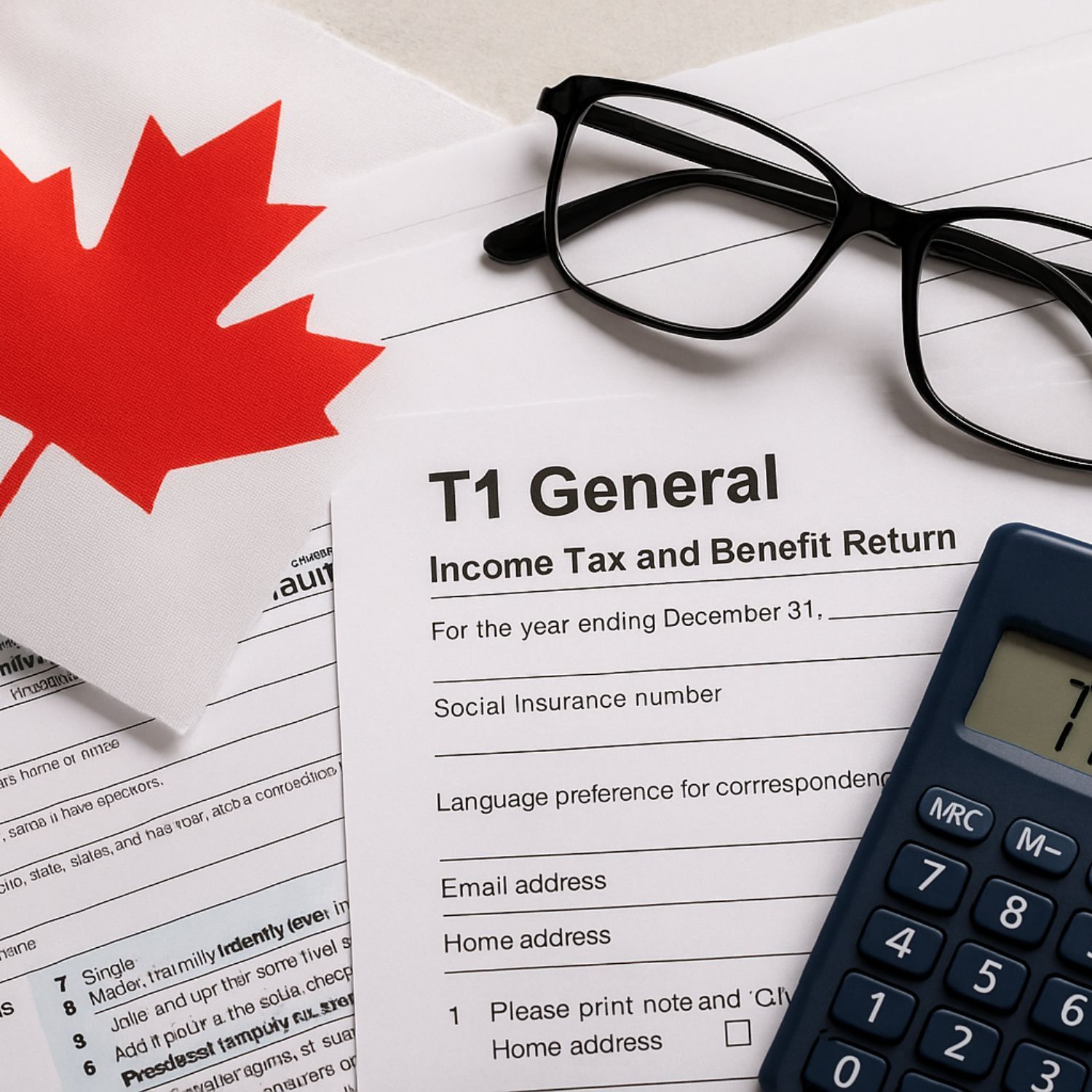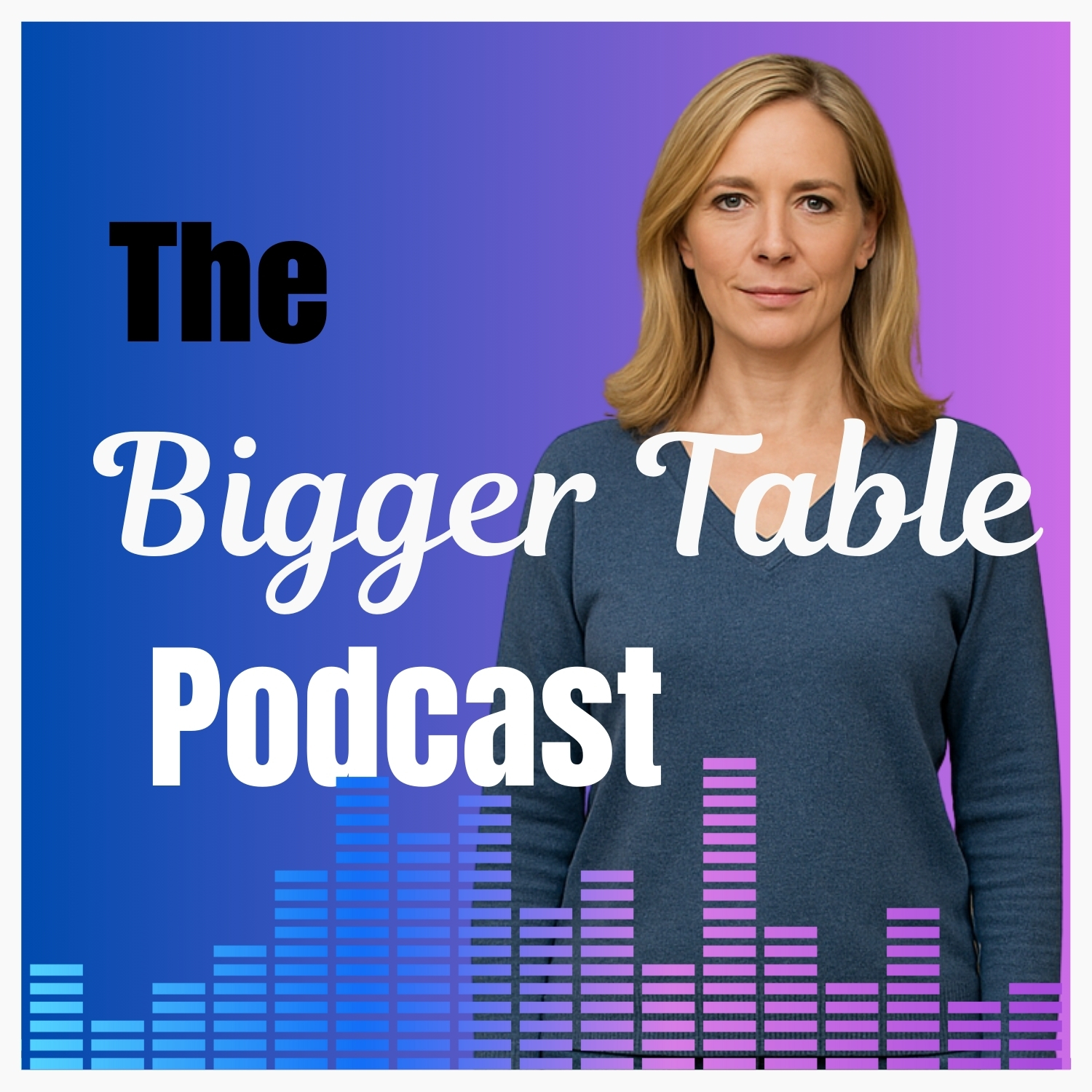Canada's Middle-Class Tax Break: More in Your Paycheck


Canada’s new 2025 tax cut lowers the lowest federal income tax rate from 15% to 14%. Find out who benefits, how much you’ll save, and what it means for your paycheque.
Welcome to the Bigger Table podcast, where we explore meaningful changes with far-reaching effects. In this episode, we delve into the exciting news for millions of Canadians—Prime Minister Mark Carney's government announced a new income tax cut. This episode takes you through the changes starting July 1st, 2025, when the federal tax rate on the first portion of income will decrease from 15% to 14%.
This seemingly small change promises significant annual savings, potentially putting hundreds of dollars back into the pockets of Canadians earning a paycheck, particularly benefiting middle and lower-income families. For 2025, an individual earning $50,000 could see savings of approximately $287, with two-income households seeing $574 in extra take-home pay. And in 2026, the savings will double as the new tax rate fully applies.
We discuss the seamless implementation of these changes by the Canada Revenue Agency and how it will affect your paycheck without you needing to take any action. This move signifies a political shift by the new government, focusing on affordability and economic fairness, a promise made by PM Mark Carney and echoed by Finance Minister François-Philippe Champagne.
While this tax cut stands as a boon for hard-working Canadians, it's not without controversy. Critics question the impact of a $27 billion relief on federal revenues and underline the absence of compensatory measures targeting wealthier Canadians or corporations. Yet, the intention remains clear - providing immediate financial relief to citizens.
This episode gives you the complete breakdown of the first of potentially many reforms under the new leadership and encourages a watchful eye on future legislative developments. Stay informed on how upcoming policy changes can affect your financial standing. Enjoy the conversation and keep advocating for a more inclusive and progressive society with the Bigger Table podcast.
00:00:00.017 --> 00:00:03.917
00:00:04.437 --> 00:00:10.217
00:00:10.217 --> 00:00:12.557
00:00:14.997 --> 00:00:19.457
00:00:19.557 --> 00:00:22.857
00:00:23.297 --> 00:00:27.957
00:00:27.957 --> 00:00:33.057
00:00:33.057 --> 00:00:34.217
00:00:34.497 --> 00:00:39.757
00:00:39.757 --> 00:00:46.837
00:00:46.837 --> 00:00:49.197
00:00:49.377 --> 00:00:55.017
00:00:55.597 --> 00:00:58.757
00:00:58.757 --> 00:01:02.297
00:01:04.137 --> 00:01:07.897
00:01:08.077 --> 00:01:13.057
00:01:13.717 --> 00:01:16.857
00:01:16.997 --> 00:01:21.137
00:01:21.137 --> 00:01:27.677
00:01:27.677 --> 00:01:33.617
00:01:35.625 --> 00:01:40.645
00:01:40.645 --> 00:01:46.045
00:01:46.665 --> 00:01:52.165
00:01:52.285 --> 00:01:58.685
00:01:58.685 --> 00:02:00.805
00:02:01.505 --> 00:02:06.965
00:02:07.405 --> 00:02:11.965
00:02:12.065 --> 00:02:15.325
00:02:15.665 --> 00:02:20.585
00:02:20.585 --> 00:02:23.305
00:02:24.785 --> 00:02:29.485
00:02:29.725 --> 00:02:31.925
00:02:32.545 --> 00:02:36.805
00:02:37.145 --> 00:02:39.825
00:02:40.465 --> 00:02:45.865
00:02:46.425 --> 00:02:51.125
00:02:51.525 --> 00:02:54.905
00:02:55.685 --> 00:03:01.525
00:03:01.645 --> 00:03:07.045
00:03:07.045 --> 00:03:09.385
00:03:11.085 --> 00:03:14.485
00:03:14.845 --> 00:03:21.245
00:03:21.905 --> 00:03:25.725
00:03:26.025 --> 00:03:28.245
00:03:28.545 --> 00:03:30.505
00:03:30.845 --> 00:03:36.145
00:03:36.465 --> 00:03:40.365
00:03:40.705 --> 00:03:44.285
00:03:45.745 --> 00:03:49.885
00:03:49.885 --> 00:03:54.765
00:03:54.965 --> 00:03:56.925
00:03:57.685 --> 00:04:01.845
00:04:02.225 --> 00:04:07.385
00:04:07.785 --> 00:04:11.725
00:04:12.105 --> 00:04:14.725
00:04:17.125 --> 00:04:21.365
00:04:21.925 --> 00:04:25.805
00:04:26.265 --> 00:04:29.005
00:04:29.685 --> 00:04:32.505














